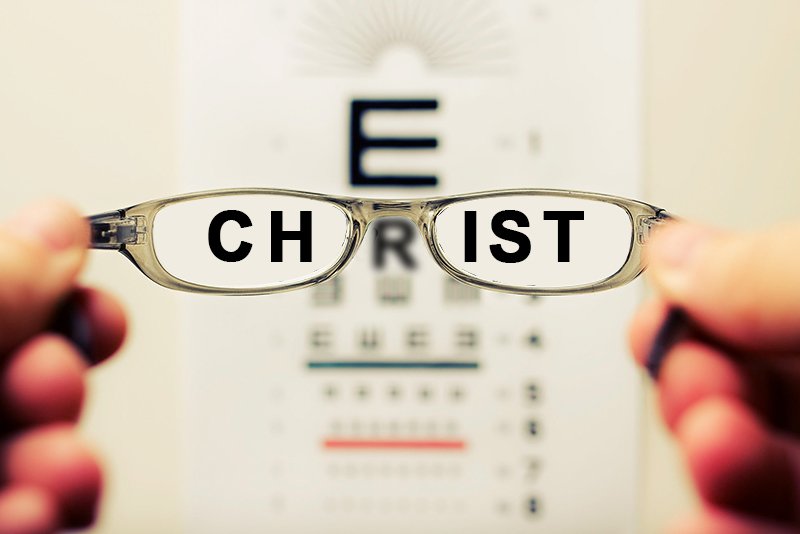Discipleship, Love one another, The Ecclesia
An appeal in troubled times (3): The oneness that binds
So far, we have seen our problems with polarisation and bias and that we must not assume that God is on our side. God is on His own side. Our responsibility is to seek to know Him and His will in honesty and humility. And that takes a lifetime.
So, how do we handle division within the ecclesia? While I will use one of the main issues currently under dispute—vaccination—the principles govern any similar division.
The conscience and the Word of God
The Bible says nothing about vaccination. We can’t assume God’s view on it either way. As Brother Roberts would say when there is no commandment:
“Therefore, let every man be persuaded in his own mind”.
It’s not a case of mere opinion; brethren do have a conscience on the matter. Ah, this tricky thing called conscience. I often hear brethren challenge whether an issue is actually one of conscience or simply opinion and question if the person has a conscience of convenience.
A conscience doesn’t require the Bible
We don’t have to believe in God to have a conscience. Atheists can have a conscience. A conscience is that “inner policeman” made up of our own standards, rules, and goals along with self-evaluative emotions, plus thought. This begins forming in early childhood and shapes our values and how we view life—our “worldview”. To each of us, this is unshakable truth.
As servants of God, we want the Bible to be the major influence upon our conscience, but it’s often not the only influence upon our moral values. Sensitivities to other people, to animals, to our environment, to other’s property, to law, to authority, to life are often established within us long before the Bible may have an influence upon us. Of course, we may find Bible principles that support those already-established views, but people will vary in their sensitivities towards such matters with or without the influence of the Bible.
A strong and a weak conscience

In the ecclesia, both sides of any moral argument believe that their values honour God. For example, long before COVID, some argue that we shouldn’t meddle with God’s creation. I’ve heard this argument used in matters of diet, genetic modification, abortion, IVF, blood transfusions, chemotherapy, radiation treatment, organ transplants, vaccination, smoking, drinking alcohol, eating black pudding, eating pork, and so on.
Other brothers and sisters argue God has allowed medical advancements to enable and save life. Many of us wouldn’t be alive today if it weren’t so—just think of premature babies or medication for asthmatics and diabetics alone. As a community, we have left these matters to each other’s conscience.
Life’s challenges to conscience
Some years ago, a brother approached me with a moral dilemma. His pregnant wife, who was not in the Truth, was critically ill, and they were confronted with the decision: her life or the child’s. They had to operate soon, or both would likely die. Each of us will probably have a view. In decisions like this, we “play God” for there is no commandment. It’s true, in times past, both would die, but given the option to save at least one life, isn’t that God’s desire, too?
I was young and felt incapable of providing the answer, so I sought help from an older brother who I respected for his biblical wisdom. His advice was that the brother put the matter to prayer, assess the matter as best they could from the Word, come to a decision, then commit that to God. If the decision was wrong, God is merciful and knows the intentions prayerfully arrived at. It had to be a personal decision.
I found the advice very helpful and passed it on to the thankful brother.
The challenge of conviction
Conflict causes us to feel the need to convince others to our point of view. It seems so clear to us. It also causes us to be defensive.

Just consider the current trials. Because the vaccine-hesitant and anti-vax groups are in the minority and governments and many of the vaccinated are pointing a finger at them, they feel the need to justify their stand. That’s what Job did and ended up justifying himself at the expense of God! While it’s good to test our own position and “prove all things”, if we nevertheless come to the same conclusion and have a conscience about it, we don’t need to justify it.
Those on the other side of the argument have to be careful, too. God does not command us to vaccinate, either. And, while we may feel that there are biblical arguments to support our view, they are just arguments that support our view. There is no moral high ground on this. There is no commandment, nor has God spelt out the answer in plain language.
As we’ve managed in the past to accommodate each other’s views and conscience on such matters without them coming to the forefront of what life in the Truth is about, so we shouldn’t allow pressures the world puts upon us to change our practice now. Paul’s assessment is:
“He that regardeth the day, regardeth it unto the Lord; and he that regardeth not the day, to the Lord he doth not regard it. He that eateth, eateth to the Lord, for he giveth God thanks; and he that eateth not, to the Lord he eateth not, and giveth God thanks.”
(Rom. 14:6)
Unity in the face of differences
But what should we do when we have a conflict between strongly convicted disciples within the ecclesia? Paul has some wonderful advice in dealing with conflict in Philippians.
A conflict between faithful disciples

The conflict involved two sisters: Euodias and Syntyche. Although Paul refers to the situation in just two verses (Phil. 4:2–3), he devotes the whole epistle to dealing with the problem! Why would he go to these lengths? He was concerned that his beloved Philippian ecclesia would fall into a polarisation spiral.
What was the issue? Internal evidence suggests the issue was one of approach to the Truth. He outlines the problem on either side of his reference to the conflict between the two sisters. One leant towards Jewish law-keeping (hence Paul’s outburst against Judaism in Philippians 3), the other leant towards Greek philosophy, particularly Stoicism (hence the constant undoing of Stoic principles in Philippians 4).
Paul showed them that, while there were elements of truth in both approaches, both were deficient and misleading because both had Self at the centre, not God.
The antidote: be of one mind
Throughout the epistle, Paul appeals for all to be of one mind:
- “Only let your conversation be as it becometh the gospel of Christ… that ye stand fast in one spirit, with one mind striving together for the faith of the gospel.” (Phil. 1:27)
- “Fulfil ye my joy, that ye be likeminded, having the same love, being of one accord, of one mind.” (Phil. 2:2)
- And finally,
- “I beseech Euodias, and beseech Syntyche, that they be of the same mind in the Lord.” (Phil. 4:2)
How can they accomplish this, especially when both parties—dedicated disciples of Christ—so passionately hold to their own views on how to serve God? Following his appeal in chapter 2:2 to be of one mind, Paul says:
“Let nothing be done through strife or vainglory; but in lowliness of mind let each esteem other better than themselves. Look not every man on his own things, but every man also on the things of others. Let this mind be in you, which was also in Christ Jesus”.
(Philippians 2:3–4)

This is how we can be of one mind despite our differences. The mind of Christ is to humble ourselves and elevate others’ needs above our own. That’s not saying we have to change our beliefs (although, we may). Notice how humility is key, and humility requires honesty.
Our problem is that we are biased and selfish, “for all seek their own, not the things which are Jesus Christ’s” (Phil. 2:21). We expect others to do this for us, but Paul says it’s we that must humble ourselves for them. How? Paul expounds on how Christ accomplished this.
The example of Christ to be one with his brethren
The fact is that Christ was the Son of God! His views on everything were exactly the same as his Father’s, and therefore he was right. Yet he could still, for the sake of others, humble himself and become a servant for us all sharing our plight (Phil. 2:7–9). If we have any doubts about whether this is the correct approach, Paul says, “Wherefore God also hath highly exalted him, and given him a name which is above every name: that IN the name of Jesus every knee should bow…” (Phil. 2:10)1. In Christ, we are subservient to God but also to each other. It’s another way of saying we must love God and our neighbour. In Christ, we “confess that Jesus Christ is Lord, to the glory of God the Father” (v.11). We are subservient to him and all in him.
Christ, our focus
Christ should be our focus and example.

He is our all. We must be “apprehended of Christ Jesus” (Phil. 3:12), pressing “toward the mark for the prize of the high calling of God in Christ Jesus” (Phil. 3:14), being prepared to “suffer for his sake” (Phil. 1:29), so that “Christ should be magnified in [our] body” (Phil. 1:20), that we may “win Christ” and “know him and the power of his resurrection” (Phil. 3:10), looking for the saviour, the Lord Jesus Christ: Who shall change our vile body, that it may be fashioned like unto his glorious body, according to the working whereby he is able even to subdue all things unto himself” (Phil. 3:20–21). All God’s answers are IN Christ. We “can do all things IN Christ which strengtheneth” us (Phil. 4:13).
How do we handle the current trial?
So, in the current trial, how can we esteem others better (more important) than ourselves, not thinking upon our own things but on the needs of others? It’s obvious, isn’t it? We must do whatever we can to protect and care for others. God’s law to Moses shows how important it is that we “love one another”. An Israelite was to:
- Build a barrier around the top of their flat-roofed houses so someone doesn’t fall off (Deut. 22:8)
- Give back a coat used for surety before sundown (Deut. 24:10; Ex. 22:26)
- Not take a person’s upper or lower millstone (Deut. 24:6)
- Never take a widow or poor person’s raiment to pledge (Deut. 24:17)
- If a leper, cover the upper lip and cry “unclean” to warn others (Lev. 13:45)
- Relieve themselves outside the camp (Deut. 23:12–14)
While each of these commands had its own purpose, the overall was that each person had to think about the needs of others, not self. As Paul says, “Love worketh no ill to his neighbour: therefore love is the fulfilling of the law” (Rom. 13:10).
What love means
It means, in the present trial, that each of us should do whatever it takes to help each brother or sister, and “lay down our lives for the brethren” (1 John 3:16). It means respecting the conscience of each brother and sister. It may mean, for example, despite the inconvenience or our own beliefs about masks, wearing one for the sake of others’ beliefs. We must do everything we can for their sake, not our own.
Isn’t this what our Lord asked us to do?
“A new commandment I give unto you, That ye love one another; as I have loved you, that ye also love one another. By this shall all men know that ye are my disciples, if ye have love one to another”
(John 13:34–35).
The world will see that we are not bickering children like them; they’ll see we are Christ’s disciples, because we are just like him.
Footnote:
1 The Greek is “in the name” not “at the name”.
Image credits:
Feature image: Image by Vicki from Pixabay
Eggs: Image by Henri Van Ham from Pixabay
Argument: photo by WEIRDVIS on RGBStock.com
Euodia and Syntyche: by the author
Washing feet: iStock
Glasses with Christ focus: Photo by David Travis on Unsplash (modified)
